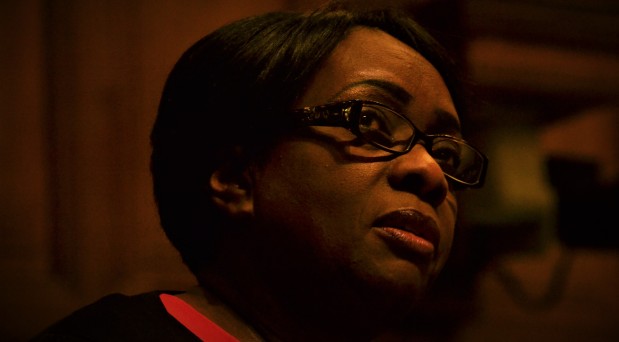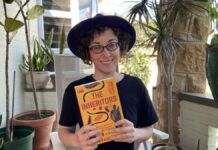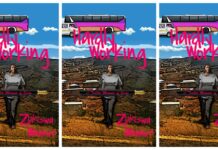Africans need to be involved in courts – says Julia Sebutinde, the first African female judge in the United Nations’ International Court of Justice. The court deals with conflicts between UN member states. She addressed journalists inside the Peace Palace in the Hague, Netherlands – a backdrop usually reserved for conflicting states and judges. Sebutinde is one of two female judges on the bar of 15 and started her term in 2012. Unlike other judges at the court, she has had very real experiences with conflict. We caught up with her about her role in the court and living through Ugandan civil wars.
I’ve often heard people say, women say, both during the campaign and after, that it’s not a big deal for a woman to be in the court. They had no idea what a deal it is, it is a big deal.
When I was toying with the idea of putting in my name, I went to the website. I took out the pictures and I looked at the last 60-something years. I was almost scared out of the idea because I thought these people would never accept me as one of their own. How will we even sit on the same table and deliberate? Would I even say anything that anybody would even listen to? And then there is Africa. Africa is sometimes its own worst problem because where we can put forward one candidate, we can put forward 13 candidates and all kinds of issues come into play.
So for me it was not easy – I went through 13 rounds in the UN! Thirteen rounds, that’s a Guinness Book record. Nobody has gone past the fourth round but I hung in there and I said it’s not over until it’s over. When the Security Council finally says you’ve lost, I’ll say I’ve lost. So I hung in there and I tell you, I lost a few kilos just in that process. So for me I value the fact – for me it’s not a given – I value the fact that I’m here.
Young and old, women all over Africa said to me, “you have opened the door for so many others that thought this was not possible”. Why does it even matter that an African woman should sit on the court? The short answer for me is, why not? Are we not part of the world community?
Living as a citizen in Uganda, we went through three civil wars. Most people ran away. I wasn’t able to leave the country. I had just my second child. I was just freshly out of hospital with a baby. And the baby was crying as you can imagine a new baby cries, and everybody in the town had left. Just a few isolated houses in Kampala. So I was there one night, my husband was stuck in Kenya. The border was closed so I was practically alone at home with a baby. So at night, five military guys drunk with AK-47s and bayonets came and broke my door down because they heard the baby crying. They entered the house, they demanded money. I didn’t have any because I had run out of money, I still had stitches [from giving birth]. All I had was a little portable radio and I knew they loved radios so I offered this to them. And then they grabbed it and said, “how do you think we’re going to share this amongst five of us. Give us a second and a third. Give everybody a radio:. I said, I don’t have five radios, that’s all I have and the baby. And somehow, by the grace of God, that was enough. They took the radio and they left. I was very very scared for my life and I knew people had lost their lives very very easily in that whole mess of the civil war and so forth. It was 1985. I can tell that because that was when my daughter was born.
One of the motivating factors in running as candidate for the court was: I come from the Great Lakes Region where, as you know, there is always conflict. Interstate conflict, internal conflict, there are so many displaced persons. Most of them are women and children. The greatest number of rapes, the greatest murders, come from that region. And as a woman judge, I had sat in cases and seen what conflict does and I said, if there is a way I can participate in the peaceful resolution of conflicts, why can’t I put forward for candidature.
Ten years of sitting in international criminal trials really gets to you. I have had enough. I didn’t want to hear anymore. You tend to lose confidence in humanity when you hear some of the things that human beings are capable of doing to one another. So I said I want to do something else but I want to do something meaningful. Something that can be meaningful from where I come from. Concerning the things that I have seen in my home. I personally lived through three civil wars, and I nearly lost my life, I nearly lost my children. So I said to myself if I can as a lawyer and a judge, use what I have in the years that I have left in this field, what do I have to lose? I’ll put my name forward. So I campaigned with that one perspective and mission and I won by the grace of God.









